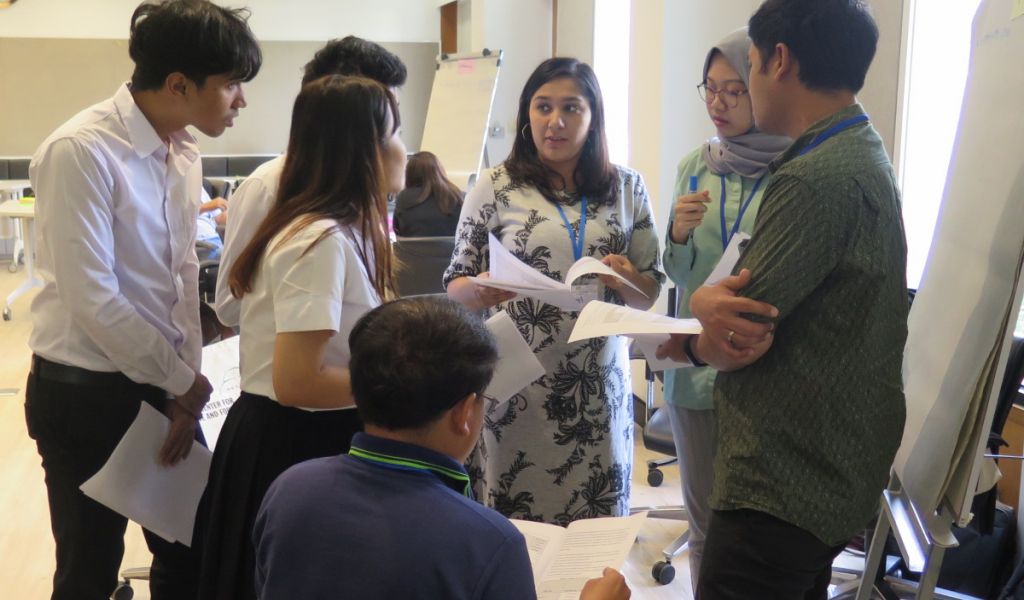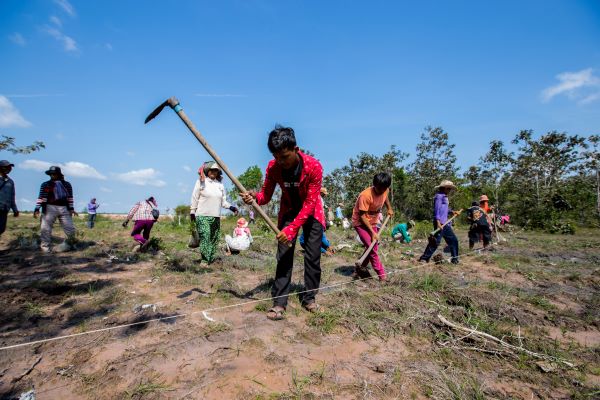Education lags in preparing people for future careers in social forestry across ASEAN

Member countries of the Association of Southeast Asian Nations (ASEAN) have declared ambitious targets for social forestry. If these countries achieve their commitment to social forestry, local communities will be managing as much as 30 million hectares of forests by 2030.
But experts warn that formal social forestry education is lagging, potentially jeopardizing the commitments to social forestry, a broad approach to forest management that empowers communities to manage and benefit from local forests.
“Students, they are the future policy-makers,” said Surin Onprom, a university lecturer at Kasetsart University in Bangkok. “How can we develop a more robust curriculum so that it can address and respond to new challenges and individual context? In reality, there are a lot of barriers that prohibit us from adjusting, changing or improving our curriculum.”
Onprom teaches forest resource management and community forestry. Together with other academics, students, experts from civil society and private sector from across Southeast Asia, Onprom joined a three-day workshop at Kasetsart University from 11 to 13 November 2019. They analysed the state of social forestry education in the region. The ASEAN-Swiss Partnership on Social Forestry and Climate Change hosted the workshop in coordination with the ASEAN Working Group on Social Forestry, with funding support from the Swiss Agency for Development and Cooperation (SDC).
Participants from Cambodia, Indonesia, Lao People’s Democratic Republic, Myanmar, Philippines, Thailand and Viet Nam agreed that awareness and interest in studying social forestry is on the rise. However, they said there is a gap between how employers and universities judge the competencies of graduates. This suggests that the level of learning at universities is not meeting the demands of the workplace.
They examined the kind of forestry training, skills and experience graduates need to find employment and advance social forestry. Specifically, social-forestry programs could benefit from applying issue-based teaching. This approach combines a variety of methods, including field training and internships to offer graduates work experience. Strengthening partnerships between academic and professional organizations across the region to develop, pilot and test programs was among the solutions participants proposed to overcome the gaps.
“Students need skills that will help them organize workshops and meetings that allow local communities and other stakeholders to participate in resource management,” Onprom said. “For this, they need to know how to connect and communicate with different stakeholders and manage multi-cultural environments."
This is particularly true in Southeast Asia, where communities that live in and near forests depend on forests for their livelihoods and sometimes use traditional methods that are not recognized by law. Understanding the individual context of a community is important, said Onprom.
Participants in the workshop also visited Hua Hin Dum Village in Suphanburi Province, Thailand. There they met with village leaders of the ethnic Karen community who manage and conserve their land using traditional rotational agriculture. They spoke about collaborating to develop field visits for students to learn from the community’s experience in forest management.
Field visits like this, Onprom stresses, are necessary for students enrolled in social forestry education programs to gain hands-on experience and learn the scope of community context.
“If we have diverse communities, then students need to be aware of different situations that might be needed,” he said. “There is not just one way. One of the main problems in Thailand is that people think one solution is best, but diversity is the issue.”
###
For more information on the ASEAN-Swiss Partnership, visit the ASEAN-Swiss Partnership on Social Forestry and Climate Change webpage.
RECOFTC’s work is made possible with the support of the Swiss Agency for Development and Cooperation (SDC) and the Swedish International Development Cooperation Agency (Sida).


